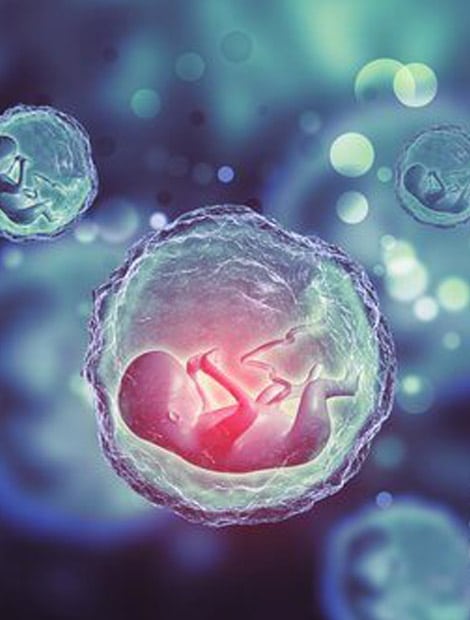Fertility tests are the most accurate way to determine whether you’re infertile and can also assist you in determining the cause. Consult a doctor if you’ve been trying to conceive for more than a year. That said, we here compile a list of questions related to fertility testing that often trouble couples or individuals around.
What are the various signs of infertility?
It’s difficult to confirm anything about infertility without proper diagnosis and testing. There aren’t always any symptoms of infertility, other than the inability to get pregnant or stay pregnant. The only way to be certain is to consult a doctor and undergo infertility testing.
When should I schedule an appointment with a doctor for infertility testing?
It’s not uncommon for it to take up to a year to become pregnant. However, if you’ve been trying to conceive for more than a year and haven’t succeeded, you should consult a doctor about infertility tests.
Certain health issues can make it more difficult to conceive. If you or your spouse have a history of any of the following, don’t wait a year to see your doctor.
- ectopic pregnancy
- Irregular periods
- Inflammation of the pelvis
- Recurring miscarriages
- thyroid issues
- cystic fibrosis
- Any sort of injury or issue with the scrotum and testes
- Erectile dysfunction
- Issues related to ejaculation
After 6 months of attempting to conceive, some doctors advise women over 35 to seek infertility testing. Suppose you are dealing with an IVF treatment clinic in Argentina. In this case, the fertility expert at the clinic would advise you to undergo certain diagnoses and tests to check on the quality or quantity of eggs.
As a matter of fact, Infertility can be tested or referred to a fertility specialist by your family doctor or gynecologist as you look forward to the best IVF treatment in Argentina.
What happens during a fertility test?
Infertility testing usually starts with a health care professional asking about your health information and performing a physical exam. Don’t get disheartened if you wouldn’t get an answer right immediately. It can take weeks or months for your physician to discover what’s causing your fertility issues.
Furthermore, the same tests and diagnoses may increase the IVF treatment cost in Argentina. Still, you should not panic and must cooperate with your fertility doctor in every aspect.
Egg, uterine, and fallopian tube fertility testing:
 A pelvic exam will be performed by your doctor. They may also examine your ovaries and uterus with ultrasound and provide a blood test to assess your hormone levels. You may need to start examining your cervical mucus, measuring your temperature, or utilizing home ovulation tests to follow your ovulation trends.
A pelvic exam will be performed by your doctor. They may also examine your ovaries and uterus with ultrasound and provide a blood test to assess your hormone levels. You may need to start examining your cervical mucus, measuring your temperature, or utilizing home ovulation tests to follow your ovulation trends.
If the answers to the first exams aren’t found, other tests and procedures are frequently performed subsequently. A hysterosalpingogram (HSG) is a test that can determine if your fallopian tubes are open. A doctor will inject dye into your uterus, which will then be monitored using an X-ray machine while the dye moves through your uterus and fallopian tubes.
Infertility testing may require small operations to look inside your body in some circumstances. The doctor will examine your fallopian tubes, ovaries, and uterus using specialized equipment.
Sperm/semen fertility testing:
A physical exam and a semen analysis are commonly included in this form of fertility testing. Your sperm will be examined for:
- Quantity and quality of sperm
- how fast your sperm travel
- your sperm’s size, shape, and quality
- the amount of seminal fluid in the body
You may also undergo a blood test to see if you have any hormone issues that could make it difficult for you to conceive.
What are the available options for infertility treatment?
Infertility treatments are of several types and forms. The type that is ideal for you is determined by the cause of your infertility issues. Sometimes only one of the partners needs treatment and other times both partners will benefit from a combination of therapies.
Infertility can be treated with a mix of lifestyle modifications, drugs, hormone therapy, and surgery. If your sperm or eggs are the cause you can use sperm and/or eggs from a donor. Intrauterine insemination (IUI) and in vitro fertilization (IVF) are two of the most frequent fertility treatments (IVF). Learn more about the many fertility treatments available.
Seeing a doctor who specializes in pregnancy and infertility is usually the first step in treating infertility. A fertility expert can be referred to you by your family doctor or gynecologist. Your local health clinic may also be able to assist you to discover a fertility specialist in your area or provide fertility treatments.
 Hebrew
Hebrew Arabic
Arabic German
German





